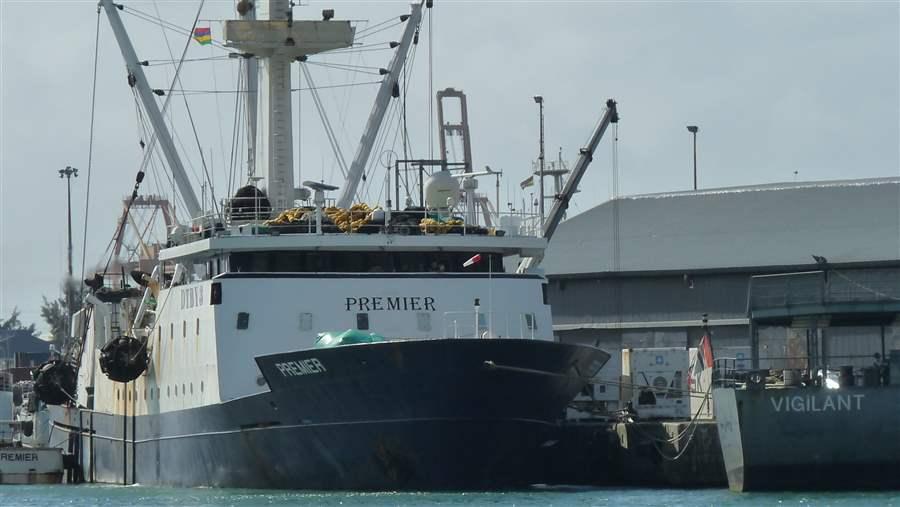How Interpol's Project Scale Is Helping to Curb Illegal Fishing
 Erik Berg/Stop Illegal Fishing
Erik Berg/Stop Illegal FishingInterpol has shown a commitment in tracking down criminals at sea and bringing justice to international waters.
Note: This article is part of the series Ending Illegal Fishing 2016.
Coordinated efforts by the international police agency Interpol and partners around the world helped set the stage for the dramatic sinking of the notorious illegal fishing vessel Thunder on April 6, 2015, in the waters off the West African island nation of São Tomé and Príncipe. Those efforts also led to the arrest and conviction of the vessel’s captain and crew for crimes related to illegal fishing.
For more than a decade, the Thunder, sailing under various names and flags of registration, had engaged in illegal fishing. As in this final instance, the vessel and its crews had chiefly targeted the high-value Patagonian toothfish—more commonly known as Chilean sea bass—in the Southern Ocean. In 2013, Interpol issued an alert known as a purple notice to its 190 member countries seeking information on the Thunder’s whereabouts. The agency also supported investigations—in at least 15 countries—of the captain, crew, and owners for illegal fishing and related crimes. Those investigations also targeted other vessels suspected of being part of the same fleet.
That work culminated with help from the São Tomé and Príncipe authorities investigating the Thunder’s sinking. In October 2015, a court there sentenced the captain and two crew members to multiple years in prison and fined them a collective $17 million on charges related to illegal fishing, forgery, and negligence. Interpol and member countries—Mauritius, Germany, and Canada, in particular—played key roles in helping São Tomé and Príncipe authorities secure and analyze the evidence used in the case.
The capture and conviction of the Thunder’s crew demonstrates Interpol’s commitment to tracking down criminals at sea and bringing justice to international waters. These efforts were a direct result of Interpol’s Project Scale, an initiative developed by the police agency with Pew and Norway to combat fisheries crimes. Since the project’s launch in 2013, Interpol has issued 14 purple notices seeking information on the tactics used by individuals and vessels engaged in illegal fishing and related crimes. Project Scale has coordinated trainings and workshops around the globe to help countries build the capacity to enforce fisheries laws. It also has held regional investigative meetings that allow countries to exchange information and investigate transnational criminal cases. Through these efforts, Project Scale provides a way for countries to tackle fisheries crimes that cross national boundaries—violations that are often far-reaching and complex in nature.
What’s next?
We will focus our work in 2016 and beyond to build on this momentum, backing Interpol in its efforts to fight fisheries crime and helping government leaders see the value in participating in Project Scale. Pew’s support will allow Project Scale to provide round-the-clock assistance in criminal investigations, such as in the case of the Thunder, as well as to foster multilateral operations to combat illegal fishing and associated crimes. Project Scale will continue to work with Interpol member countries to improve coordination, raise awareness of illegal fishing, and identify specific operational needs within those countries.











